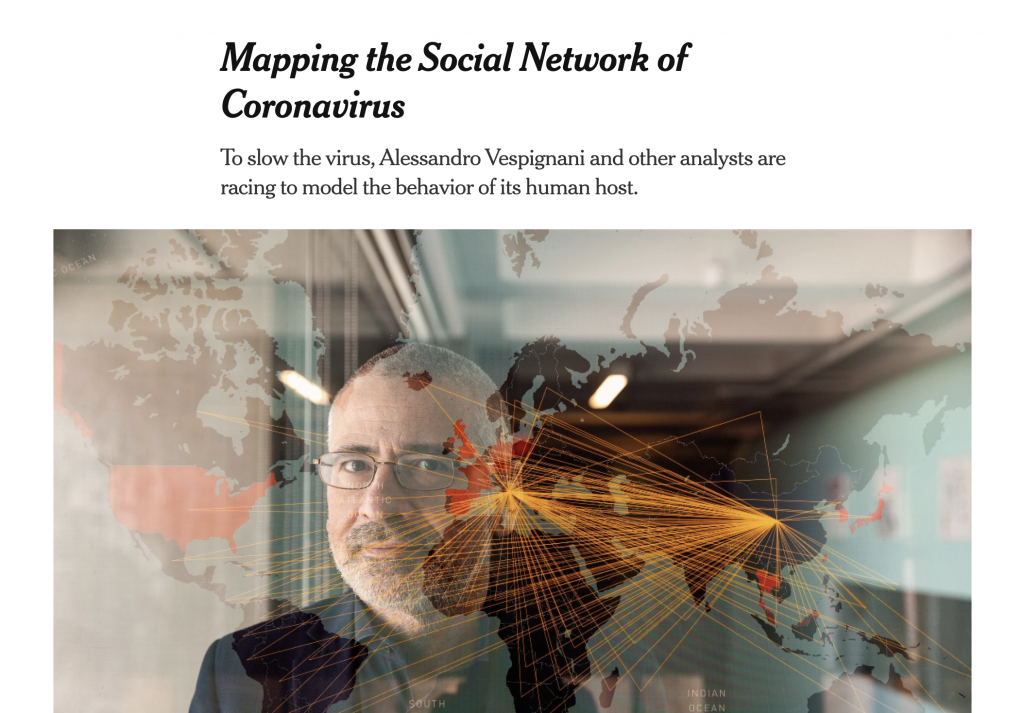
< Access the Article Here >
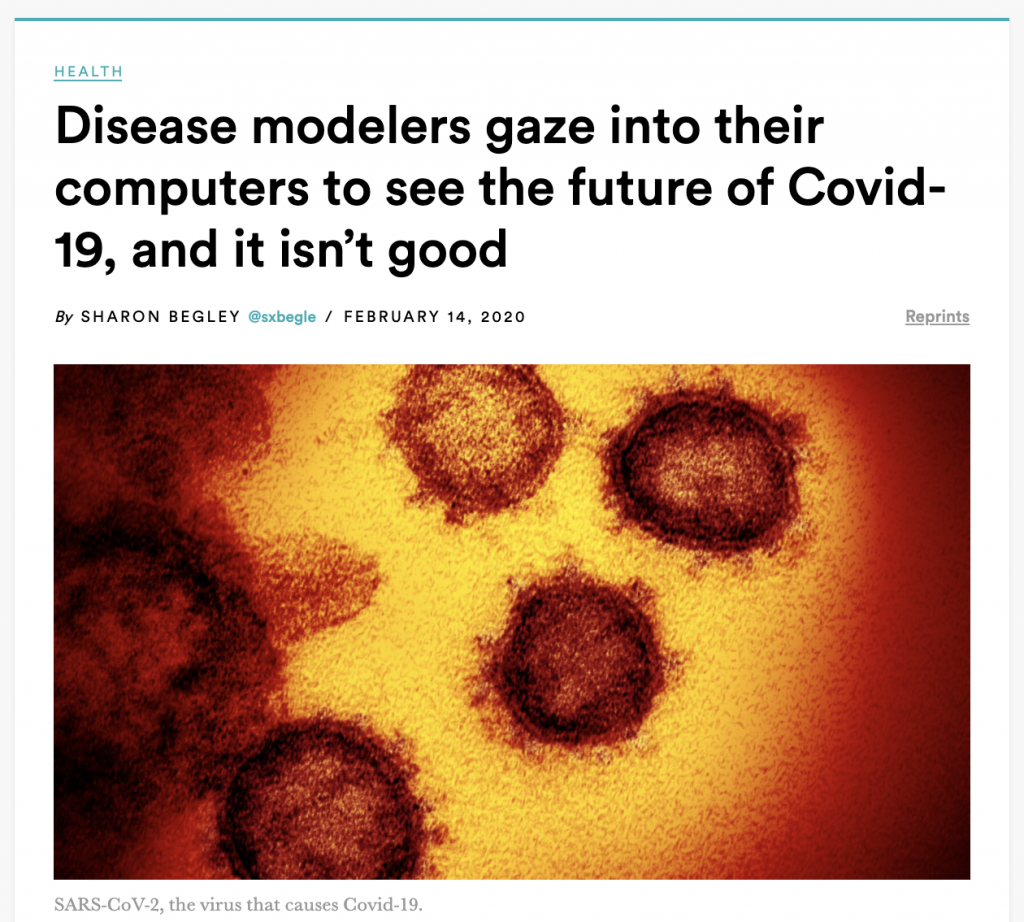
Pretty approachable article about modeling including agent based modeling in epidemiology with applications to COVID-19 …
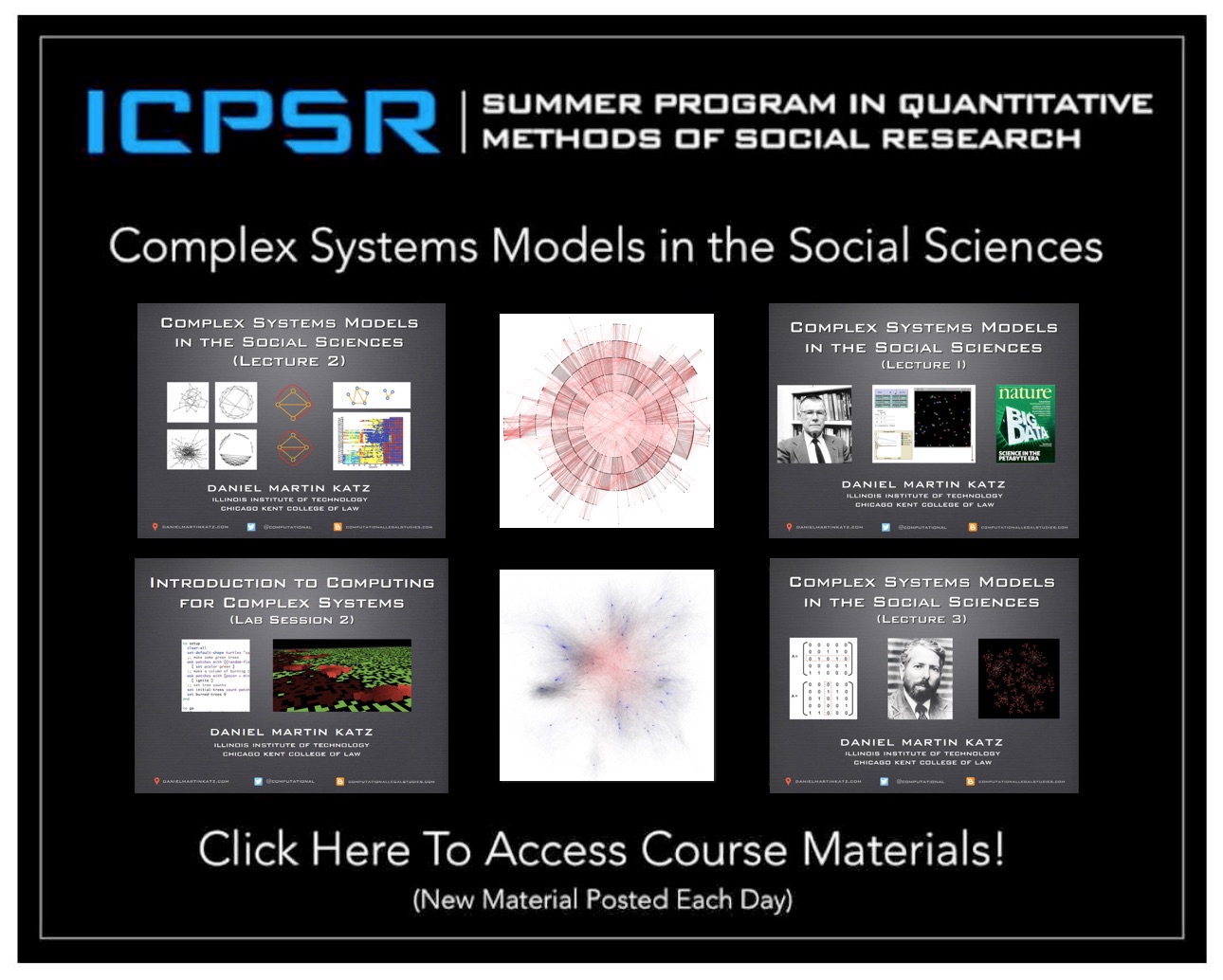 This upcoming week and next week I have the pleasure of teaching “Complex Systems Models in the Social Sciences” here at the University of Michigan ICPSR Summer Program in Quantitative Methods. The field of complex systems is very diverse and it is difficult to do complete justice to the range of scholarship conducted under this umbrella in a short survey course. However, we strive to cover the canonical topics such as computational game theory and computational modeling, network science, natural language processing, randomness vs. determinism, diffusion, cascades, emergence, empirical approaches to study complexity (including measurement), social epidemiology, non-linear dynamics, etc. Click here or on the image above to access my course materials!
This upcoming week and next week I have the pleasure of teaching “Complex Systems Models in the Social Sciences” here at the University of Michigan ICPSR Summer Program in Quantitative Methods. The field of complex systems is very diverse and it is difficult to do complete justice to the range of scholarship conducted under this umbrella in a short survey course. However, we strive to cover the canonical topics such as computational game theory and computational modeling, network science, natural language processing, randomness vs. determinism, diffusion, cascades, emergence, empirical approaches to study complexity (including measurement), social epidemiology, non-linear dynamics, etc. Click here or on the image above to access my course materials!
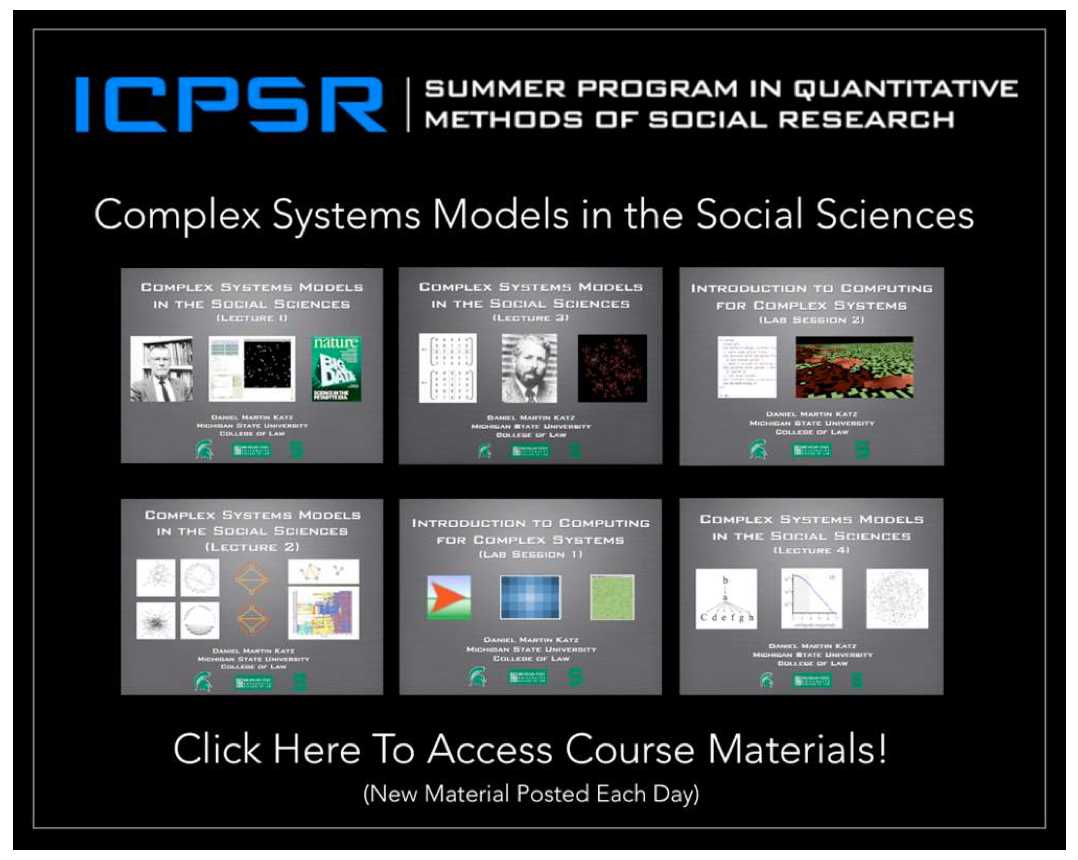 This upcoming week and next week I have the pleasure of teaching “Complex Systems Models in the Social Sciences” here at the University of Michigan ICPSR Summer Program in Quantitative Methods. The field of complex systems is very diverse and it is difficult to do complete justice to the range of scholarship conducted under this umbrella in a short survey course. However, we strive to cover the canonical topics such as computational game theory and computational modeling, network science, natural language processing, randomness vs. determinism, diffusion, cascades, emergence, empirical approaches to study complexity (including measurement), social epidemiology, non-linear dynamics, etc. Click here or on the image above to access my course materials!
This upcoming week and next week I have the pleasure of teaching “Complex Systems Models in the Social Sciences” here at the University of Michigan ICPSR Summer Program in Quantitative Methods. The field of complex systems is very diverse and it is difficult to do complete justice to the range of scholarship conducted under this umbrella in a short survey course. However, we strive to cover the canonical topics such as computational game theory and computational modeling, network science, natural language processing, randomness vs. determinism, diffusion, cascades, emergence, empirical approaches to study complexity (including measurement), social epidemiology, non-linear dynamics, etc. Click here or on the image above to access my course materials!
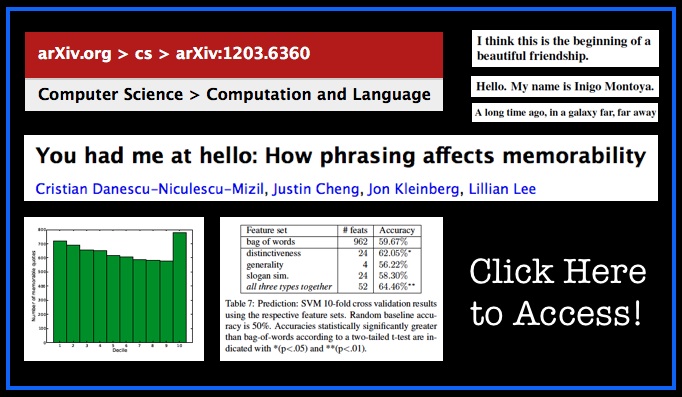 From the Abstract: “Understanding the ways in which information achieves widespread public awareness is a research question of significant interest. We consider whether, and how, the way in which the information is phrased — the choice of words and sentence structure — can affect this process. To this end, we develop an analysis framework and build a corpus of movie quotes, annotated with memorability information, in which we are able to control for both the speaker and the setting of the quotes. We find significant differences between memorable and non-memorable quotes in several key dimensions. One is lexical distinctiveness: in aggregate, memorable quotes use less common word choices, but at the same time are built upon a scaffolding of common syntactic patterns; another is that memorable quotes tend to be more general in ways that make them easy to apply in new contexts. We also show how the concept of “memorable language” can be extended across domains.”
From the Abstract: “Understanding the ways in which information achieves widespread public awareness is a research question of significant interest. We consider whether, and how, the way in which the information is phrased — the choice of words and sentence structure — can affect this process. To this end, we develop an analysis framework and build a corpus of movie quotes, annotated with memorability information, in which we are able to control for both the speaker and the setting of the quotes. We find significant differences between memorable and non-memorable quotes in several key dimensions. One is lexical distinctiveness: in aggregate, memorable quotes use less common word choices, but at the same time are built upon a scaffolding of common syntactic patterns; another is that memorable quotes tend to be more general in ways that make them easy to apply in new contexts. We also show how the concept of “memorable language” can be extended across domains.”